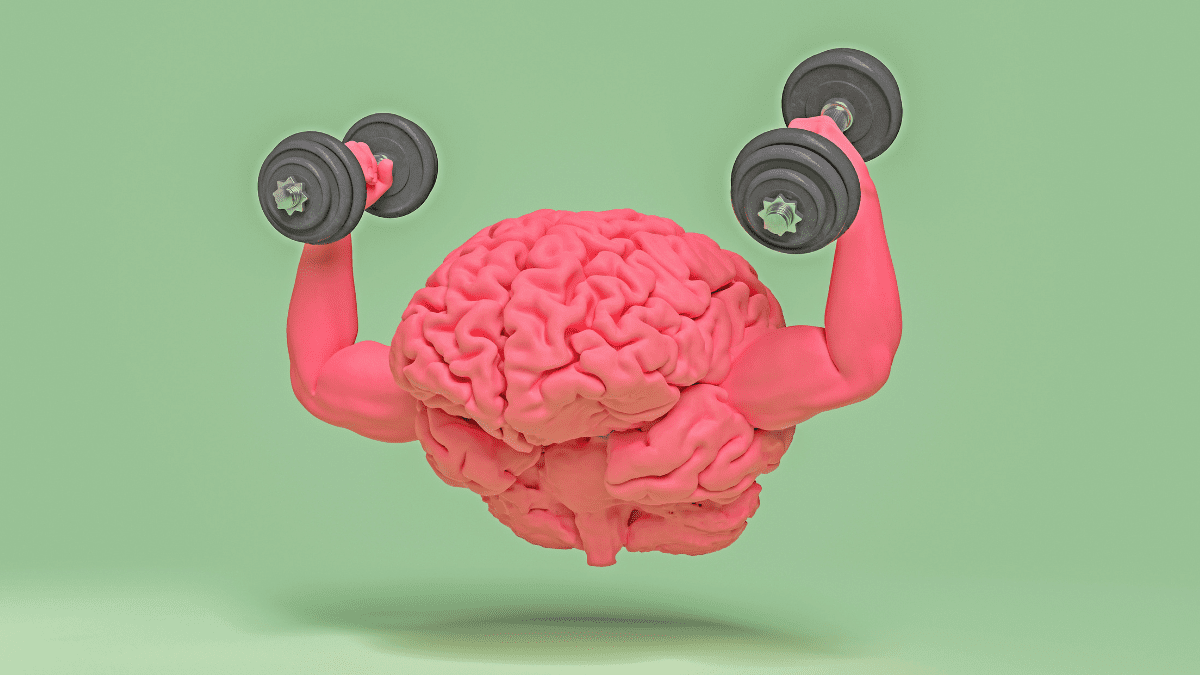Healing Your Mind Is Possible: Here’s How to Begin Today
Healing your mind is possible when you break free from hidden wounds. Reclaim your power, restore inner peace, and finally live the life your soul has been craving.

In This Article
- Healing Your Mind Begins Here: A New Chapter Awaits
- Why Healing Your Mind Matters More Than You Think
- Where Healing Your Mind Actually Begins
- Daily Habits for Healing Your Mind Naturally
- Inner Work: Emotional Tools for Healing Your Mind
- Finding Support While Healing Your Mind
- You Have the Power to Begin Again
- Healing Your Mind — FAQ
Healing Your Mind Begins Here: A New Chapter Awaits
Life can feel heavy when your mind is carrying invisible wounds. The truth is, healing your mind is not only possible—it’s within your reach right now.
You may have spent years hiding pain behind a strong face. Or maybe you’ve tried to move on, but old emotions keep pulling you back. Either way, you’re not alone. Many people carry hidden scars that quietly shape how they think, feel, and show up in the world.
But here’s the good news: the mind is designed to heal. With the right tools, support, and daily shifts, you can begin to feel whole again. Not tomorrow—today.
In this guide, you’ll learn how to reconnect with your inner world, release mental clutter, and rebuild peace from the inside out. We’ll explore proven practices, powerful mindset changes, and science-backed steps that make transformation not only possible but lasting.
If you’re just starting your journey, this post on mindfulness practices to enhance your life is a powerful place to begin.
Now let’s explore how to make that first step count.
Why Healing Your Mind Matters More Than You Think
How Does Mental Pain Affect the Body?
Mental and emotional wounds don’t just stay in the mind. They echo through the body, too. Chronic stress can weaken your immune system. It can also trigger inflammation, digestive problems, and even heart issues.
You may notice fatigue that rest doesn’t fix. Or tight muscles that no stretch can release. These are signs your body is holding emotional tension. And unless the mind heals, the body keeps the score.
Still, once you begin healing your mind, the body often follows. You feel lighter. Energy returns. The nervous system settles. That’s because mental health and physical health are deeply connected.
Are You Carrying Invisible Emotional Wounds?
Some wounds don’t look like trauma—but they still hurt. Emotional neglect. Constant criticism. A life of never feeling “enough.” These leave lasting marks on how we see ourselves.
You may overwork, overthink, or people-please to cover the pain. Or maybe you feel stuck, unmotivated, and unsure why. These are often symptoms of suppressed emotions.
Acknowledging those wounds is the first key to healing. When we name what hurt us, we reclaim our voice. And from there, we begin to release the weight.
What Happens When You Live in Survival Mode Too Long?
Sometimes, your mind adapts to stress so well, it forgets how to relax. You stay busy. You avoid stillness. Deep down, it feels safer to keep going than to feel.
But living in survival mode is exhausting. It keeps you hyper-aware, always bracing for impact. Over time, this drains your energy and narrows your capacity to connect with others—or yourself.
Healing your mind requires slowing down. It means learning how to feel again, not just think. This shift is possible. And it’s where your true strength begins to grow.

Where Healing Your Mind Actually Begins
Can You Begin Without Self-Awareness?
Not really. Healing starts the moment you turn inward. Many people want to feel better, yet avoid facing the truth of how they feel. That’s where self-awareness begins.
It’s not about overthinking. It’s about becoming radically honest. What hurts, what keeps returning and what do you avoid when silence finds you?
Asking these questions helps you shift from reaction to reflection. Change doesn’t start with action—it starts with understanding. Even quiet tools like journaling or breathwork can unlock that space.
Still, progress only happens when you’re willing to sit with the discomfort. That’s how emotional truth begins to surface.
What Makes a Space Safe for Healing?
Your mind needs a signal that it’s safe to soften. Sometimes that comes from your surroundings. Other times, it comes from who you choose to be around.
A noisy, chaotic space can trigger restlessness. In contrast, soothing spaces help you feel grounded. Think minimal distractions, gentle lighting, or a spot in nature.
Even one peaceful room can shift your emotional state. The physical environment speaks to the nervous system. It either says “stay alert” or “you can exhale.”
Likewise, setting emotional boundaries protects your inner space. When you reduce drama and negativity, you make room for repair.
Why You Must Let Go of the “Fix It Fast” Mindset
Real healing doesn’t happen overnight. That truth can feel frustrating at first, especially in a world that worships speed. But healing isn’t linear—it’s layered.
Some days bring relief. Others might feel like setbacks. Yet both are part of the process. No moment is wasted.
Letting go of urgency gives your mind space to unwind. You learn to rest without guilt. You stop measuring your growth by productivity.
The brain reshapes slowly. Your compassion creates the conditions for change. With time and trust, healing becomes a way of being—not just something to achieve.
Daily Habits for Healing Your Mind Naturally
Can Meditation Really Change Your Brain?
Absolutely. Meditation isn’t just a moment of quiet—it reshapes your inner world. Even a few minutes a day can shift how you respond to stress.
Breathwork adds another layer. It calms your nervous system fast. You don’t need experience or special tools. Just sit, breathe deeply, and let the tension melt.
Over time, you’ll notice more clarity. Less reactivity. More presence. And that’s when healing deepens. Not because life gets easier, but because your response becomes wiser.
How Can Movement Help You Feel Emotionally Free?
The body holds what the mind avoids. That’s why gentle movement helps release stuck emotions. Practices like yoga, walking, or stretching move more than muscles.
They also move energy. Emotion is energy in motion. When you move with intention, you allow that energy to process and flow.
Even five minutes of daily movement can change your emotional state. It reconnects you with your body, which is essential to mental healing.
Your body becomes a partner in the process—not just a container for stress.
What Role Does Nutrition Play in Healing Your Mind?
What you eat feeds your thoughts. Nutrient-dense foods support brain function and reduce inflammation. That creates a more stable foundation for emotional healing.
Processed foods, sugar, and caffeine can disrupt your mental clarity. In contrast, whole foods support a healthy gut-brain connection.
This doesn’t mean perfection. It means awareness. Choosing foods that nourish your system helps your mind feel more balanced and alert.
It’s one more way to care for yourself from the inside out.
Why Digital Detoxing Supports Deep Healing
Screens keep your mind busy. Constant scrolling disrupts focus and numbs emotional signals. Without breaks, your brain rarely finds stillness.
A digital detox doesn’t have to be extreme. Start with one hour. Silence notifications. Step outside.
Nature resets your nervous system. Silence restores your attention. With time, you’ll crave stillness more than stimulation.
Healing your mind happens when you return to yourself—and that’s easier without constant noise.

Inner Work: Emotional Tools for Healing Your Mind
What Is Inner Child Work—and Why Does It Matter?
Deep healing starts with recognition. Often, parts of you still carry the pain of unmet needs. These younger parts live within the adult self, quietly shaping how you think, feel, and react.
Reparenting your inner child means offering what was once missing. Safety. Love. Attention. It’s a practice of nurturing yourself in ways others never could.
Even a few moments of gentle self-talk can shift everything. You begin to soften. You build inner trust. And slowly, that old pain starts to lose its grip.
How Can Self-Compassion Accelerate Healing Your Mind?
Self-compassion isn’t a luxury—it’s a necessity. Many people try to heal through discipline or pressure. But what the mind truly needs is kindness.
When you replace self-criticism with understanding, healing speeds up. You stop fighting yourself and start listening. You become a safe place to land.
This shift doesn’t mean weakness. In fact, it builds strength. It takes courage to meet your pain with care instead of judgment.
The more you practice it, the more natural it becomes. And eventually, your mind learns it’s safe to let go.
What Happens When You Release Shame?
Shame thrives in silence. It tells you to hide, to pretend, to disconnect. But healing your mind requires the opposite—openness, expression, and truth.
When you name shame, you weaken its power. Speaking your story, even just to yourself, can lift a lifelong weight.
You don’t have to share it publicly. Writing it out. Whispering it aloud. Holding it with compassion. These steps invite healing in.
Each time you do, you claim a little more freedom. And freedom is the foundation for deep emotional healing.
Finding Support While Healing Your Mind
When Should You Seek Help from a Therapist or Guide?
Sometimes, healing on your own isn’t enough. You may feel stuck, overwhelmed, or unsure where to go next. That’s when professional support becomes essential.
Therapists, coaches, and healing guides offer tools you may not access alone. They provide structure, safety, and perspective. Most importantly, they help you move forward without retraumatizing yourself.
Asking for help isn’t weakness—it’s wisdom. Healing your mind becomes more powerful when it’s shared. You deserve that kind of support.
Can Community Help You Heal Faster?
Absolutely. Healing isn’t only personal—it’s relational. Being seen and heard in safe spaces can speed up emotional growth.
Joining mindfulness circles, support groups, or spiritual communities brings connection. You stop feeling alone in your struggle. You begin to feel held.
Shared experiences remind you that your pain isn’t unique, and that’s a good thing. Others have walked this path. And they survived. So will you.
Even virtual spaces can feel sacred when they’re built on empathy and presence.
How Can You Use Tools to Empower Healing Your Mind?
You don’t have to rely only on conversations. Books, courses, and audio programs can be powerful tools for mental transformation.
Start with topics that speak to your current needs. It might be trauma healing, self-compassion, or nervous system regulation.
Learning expands your capacity to self-soothe and self-lead. When you absorb healing wisdom, your perspective shifts. That creates new emotional freedom.
Make learning part of your daily or weekly rhythm. Let knowledge support the journey inward. With time, you’ll become your own guide.
You Have the Power to Begin Again
Healing your mind may seem impossible at first. The weight of emotional pain, old memories, or constant overthinking can feel overwhelming. Still, you’ve already taken the most important step—awareness.
From here, your healing journey unfolds. One breath. One choice. One day at a time.
You’ve learned that the mind and body are deeply connected. You now know that creating a safe space, both inside and out, makes transformation possible. And most of all, you’ve seen that daily habits shape emotional resilience more than any single breakthrough.
Even if progress feels slow, it’s still progress. Healing doesn’t follow a straight line. It loops, pauses, and restarts. Yet with each loop, you become stronger. More grounded. More aligned with your true self.
When you meet yourself with compassion, everything shifts. You stop running. You start returning. Every small act of self-care becomes a message to your nervous system: you are safe now.
You don’t have to do it alone either. Support is always within reach. Communities, professionals, and resources exist to guide you back to peace.
So wherever you are today, begin again. Gently. Bravely. With hope.
Because healing your mind is not only possible—it’s your path to the life you were always meant to live.
Healing Your Mind — FAQ
How long does it take to start healing your mind?
Healing is deeply personal and varies for everyone. Some people notice changes within weeks of consistent practice, while others need months or more. What matters most is starting. Progress is still progress, no matter the pace.
Can I heal my mind without therapy?
Yes, it’s possible to begin healing your mind on your own through self-awareness, mindfulness, daily habits, and emotional tools. However, therapy can provide deeper support and structure when needed.
What are the first steps to healing your mind?
Begin by creating a safe, quiet space. Practice self-awareness through journaling or breathwork. Then slowly build supportive habits like meditation, movement, and self-compassion. Small steps lead to lasting change.







